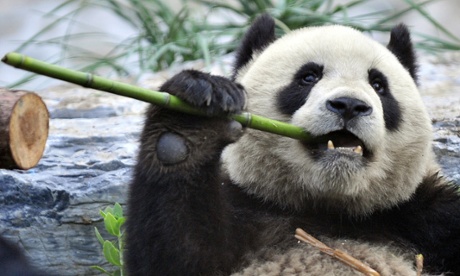Translate
Thursday, July 24, 2014
#JewsandArabsRefuseToBeEnemies




As Egypt attempts to broker an extended ceasefire in Gaza after 15 days of fighting that has resulted in more than 620 deaths, some Israelis and Palestinians are taking to social media to show their desire for an end to the bloodiest conflict between the two warring sides in 15 years.
Israelis and Palestinians of all ages are posting photos of themselves with messages that project beauty, hope and despair.
The hash tag #JewsandArabsRefuseToBeEnemies was propelled by a photo taken by Arab-American journalist Sulome Anderson, kissing her Jewish boyfriend, Jeremy.
"When it comes down to it, we're people and we love each other and that's what matters most," she told ABC News.
"When we started dating we would argue a lot about politics and slowly but surely, we started coming to some consensus," Anderson said. "We still argue sometimes, but we're coming closer to understanding each other's perspectives."
It's a story that echoes the desire by some Palestinians and Israelis for a change in the narrative of the latest tragic chapter of the Arab-Israeli conflict.
There are photos of Jews and Palestinians kissing over the Israel-Gaza West Bank barrier, Orthodox Jewish men carrying Palestinian boys on their shoulder and children on both sides of the conflict uniting through friendship.
One young woman concerned by the war summed up the internal conflict of many people in the region.
The trend has spread around the world, with concerned Palestinians and Jews uniting in Paris, Berlin and New York.
"We wanted to spread an idea that wouldn't polarize, something that would be heard not just by the people who agree with us but by those who don't." Ms Anderson told the LA Times.
"Militancy and anger haven't helped bring this to an end. Maybe, we thought, it was time for a different approach."
While Ms Anderson and her boyfriend pushed the hashtag to new height in the twittersphere, the social media phenomenon was actually started by two US University Students, Abraham Gutman of Jewish origin and Dania Darwish, who is of Arabic origin.
"We never felt that our discussion became rude or had a tone of hate," the 23-year-old Gutman told ABC.
"But with Israel and Gaza, it seems that the tone online and on social media is harsher and harsher and people are using more violent words. We wanted to produce a voice that counters that. We can disagree, but we must be able to diffuse the hate."
The UN Human Rights Council has condemned the Israeli assault on Gaza, describing it as a "disproportionate and indiscriminate attack."
It has launched a probe into alleged Israeli war crimes.
With Israeli and US encouragement, Egypt has tried to get both sides to hold fire and negotiate terms for an extended period of calm in Gaza
The Eid al-Fitr festival, which follows the end of Ramadan this weekend, could provide all sides with a moment to agree to a ceasefire.
Read more: http://www.smh.com.au/world/jews-and-arabs-refuse-to-be-enemies-20140724-zw7q0.html#ixzz38NtDmgg2
Houghton's horse caught up in morphine drugs case
Eve Johnson Houghton latest trainer caught up in morphine drugs case http://gu.com/p/4v788 |
Wednesday, July 23, 2014
cute panda

Pandas search high and low to get their fill of different bamboos
Chinese and Australian scientists find pandas migrate long distances to maintain a balanced diet which helps them breed
Pandas may have been unfairly maligned over their seemingly futile devotion to bamboo. Research has found that the animals switch between species of the plant to reproduce.
A six-year study has found that pandas migrate relatively long distances to eat different parts of two bamboo species – arrow bamboo and wood bamboo – to maintain a balanced diet and to get the nutrients they need to breed.
Researchers, led by the Chinese Academy of Sciences and Sydney University, attached GPS collars to seven pandas in Foping reserve in Shaanxi, central China.
The study was able to confirm the theory that pandas move up from the valleys of the Qinling mountains to higher ground in spring, and back to lower ground in autumn.
When on higher ground, about 2,500m above sea level, the pandas can obtain vital protein from bamboo shoots. But calcium-rich leaves aren't in edible form at this height so the black and white mammals have to descend to lower ground to eat these leaves.
Pandas need calcium to help them reproduce – albeit that the animals are as notorious for their lack of breeding as they are for their fussy diets.
Researchers said the work shows that pandas' culinary habits are a little more sophisticated than they have been given credit for, with bamboo often considered a poor nutritional choice.
"The concept of bamboo being a bad food for pandas is nonsense," professor David Raubenheimer of Sydney University, and study co-author, told Guardian Australia.
"Pandas have adapted to bamboo; it's their food. When you look at it more closely you understand there are patterns of movement needed for diet and reproduction.
"Yes, for many herbivores eating bamboo would be a challenge because the nutrients are very diluted. But pandas cope with this by eating large amounts of it. They live in a sea of the stuff and they can eat for 16 or 17 hours a day. They've got all the time in the world to sit there and eat it."
Raubenheimer said the research had important conservation implications for the giant panda, which has an estimated wild population of just 1,600.
"Because pandas have to trek 20 to 30 kilometres to different places for their food, we can't think of these two habitats as optional extras to maintain," he said. "Pandas need both habitats conserved. It may look like they have enough bamboo in one location but they need the calcium, nitrogen and protein from different areas.
"Pandas used to be far more widespread but the encroachment of villages has pushed them up the mountains. We really need to make sure these two habitats are conserved."
